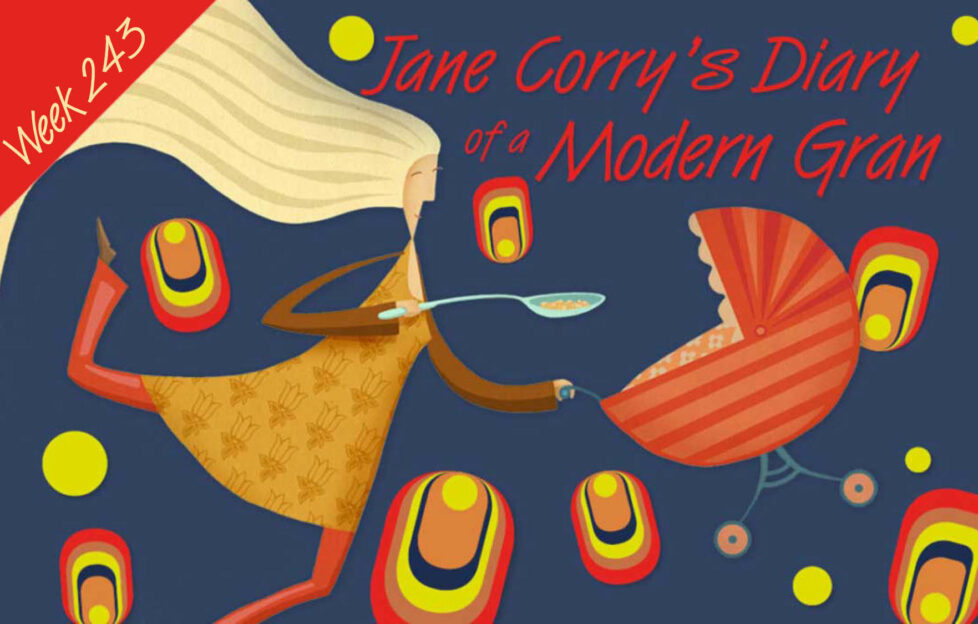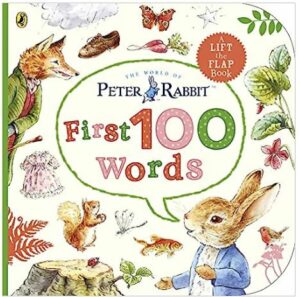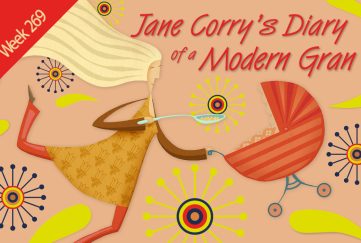Diary Of A Modern Gran: Granny Tells A Life Story (Or Two)

I’m sitting in a room with 12 other people. All of of us are over 50. I’m two hours away by plane from my own grandchildren, like quite a lot of us here. And we are all telling each other stories about our families.
That’s right. I’ve been asked to run a ‘how to write your life story’ writing course in Spain and – oh my goodness – there are some wonderful tales that are coming out.
Of course, I can’t tell you what they are. That wouldn’t be right. But I can say that the point of this workshop is to help people who have got to a stage where they want to leave behind a written memory of their life for their children; grandchildren; great-nephews/nieces or any other loved ones.
I get that – don’t you? How often do I now wish that I had listened more carefully to the things that my parents and grandmother had told me!
At the time, they had just seemed like stories from the old days which were no longer relevant. In fact, as I grew up and began to write for a living, many of these reminiscences kept working their way into my novels. So some of it must have sunk in! For example, my own grandmother, who was widowed young, was the inspiration for a stylish and resilient granny called Betty in one of my Penguin novels I Made A Mistake.
‘I’ve tried to write my life story before,’ says one of the ladies in my class. ‘But it took me three years to get to the age of 10!’
We all laugh because we know what she meant.
It’s a common feeling! Once you get started on your life story, it’s easy to get bogged down with details.
That’s why, a few years ago, I came up with some quick and easy ways of writing a life story. This week, I thought I might share one of my methods. It’s called ‘It’s A First’ and in a way, it’s like an expanded memory list.
You start by writing down headings such as ’My first memory’ or my ‘First bike as a child’ or ‘My first school’. Then you write a few lines to describe it. You can write as little – or as much – as you want! Try to bring in as much colour and detail as possible to make that memory alive.
For example, I can vividly recall being in my cot in a dark room and pretending to be asleep when one of my parents came in. I can also remember being in another cot – this time in Great Ormond Street hospital. (As a child, I had chest problems.) I can remember my first bike – it was actually a red scooter! And I can recall how one of my cousins mended it for me when it broke.
I can also remember my first school and how I was sent into the cloakroom for talking out of turn. This was very unlike me! Maybe that’s why I remember it. Then, moving on in life, you could have paragraphs such as ‘my first child’, or ‘my first grandchild’. There you could describe your memories and feelings when these children were born.
Try to put an approximate date and also a location next to each of your ‘firsts’. Detail is important. If you remember your first house, give the address. Future generations might then be able to go and look at it from the outside!
Our workshop lasted three hours and we all laughed and cried at times.
Writing your life memories can be very cathartic. If you don’t have children, you might still want to write a life story for a niece or great nephew or simply for yourself.
Some people find it can help them reflect on the past and move forward if they feel a bit ‘stuck’. In fact, some people write their life stories with the intention of putting it in the bottom drawer and not showing it to anyone.
The proceeds of my talk went to a local homeless charity. The older I get, the more I realise the importance of giving things back. Afterwards, I ring my grandchildren on Facetime. I’ve only been away for a few days, but I miss them so much. Their sweet, cheerful, little faces, beamed up on my iPad, and immediately sent homesick darts shooting through me.
‘Did you have a good day?’ I ask.
‘Yes,’ pipes up George. ‘I did a forward roll.’ (They’ve just been to their after-school gymnastic class.)
‘I couldn’t quite do it,’ says Rose. ‘But I did manage the first bit.’
I sense a little regretful note in her voice.
‘Don’t worry,’ I say quickly. ‘I couldn’t do forward rolls either.’
It’s true! I hated putting my neck on the ground.
Her face lights up. Immediately, I know I’ve said the right thing.
Meanwhile, if you’ve written your life story, do get in touch. We’d love to know about your experiences! Also, let us know if you’d like more tips. I’ve got plenty more up my sleeve! You can email us at moderngran@dctmedia.co.uk.
Ask Agony Gran
My grandchildren, aged between five and ten, often come to stay with me in the holidays. They love playing in the garden. Unfortunately, my elderly neighbour who is on his own, is always making comments out loud over the fence about how noisy they are.
The children are due to come and stay again with me this summer holidays and I feel I want to say something to my neighbour in advance. However, I don’t know what to say. Do you have any advice?
Name withheld
Jane Says:
Neighbours can be wonderful – but they can also be tricky. When someone is a bit difficult in life, I find it helps to stand in their shoes and see things from their point of view. Maybe it’s as ‘simple’ as your neighbour feeling that his peace and quiet are being disturbed.
Or perhaps your neighbour feels a little jealous that you have company. If it was me, I drop him a note or have a friendly word to explain that your grandchildren will be visiting you. Then you could say something like ‘I’m sorry if they make a noise, but they will only be here for a short time and they do love to play in the garden.‘
Perhaps you could even ask your neighbour to come over for a cup of tea and join you. This might not work, but it’s worth a try.
I wonder what your relationship with your neighbour is like during the rest of the year? Perhaps you could try to befriend him by inviting him in for a cup of tea when the children aren’t there. Good luck.
If you’d like to share a problem with us anonymously, email moderngran@dctmedia.co.uk
Your Feedback
Your column on why little things can be so important, reminded me of the day when my son (then about ten) came home from school with a bluebell. He said he’d picked it for me in a field because it was my favourite colour. I pressed it in a cookery book and still have it.
Alice, Worcester
I felt very sorry for the granny whose son didn’t approve of her having a gentleman friend. Why do grown-up children always think they know best? I’d tell her to have a good time while she can!
Name withheld
The Funny Things They Do And Say
Walking home from school with Esther, my six-year-old granddaughter, she was telling me that she had been practising a dance for the upcoming talent competition at school.
‘Well, practice makes perfect,’ I said.
‘Oh no, Nanny,’ she admonished me. ‘Practice makes progress, nothing’s perfect.’
She came second in the competition, a fantastic achievement.’
Thanks to Wendy for sending this in!
If your grandchildren have said or done something funny, do let us know! moderngran@dctmedia.co.uk.
Where To Take The Grandchildren
DINOSAUR ISLE MUSEUM, Sandown, Isle of Wight. dinosaurisle.com Email: dinosaur@iow.gov.uk Telephone: +44 (0)1983 404344
A fantastic place for both adults and children! Learn about these astonishing creatures as well as rocks. There are some great fossil walks too.
If you’d like to recommend a day out for the family, please email us at moderngran@dctmedia.co.uk.
Family News
A new survey by the charity Kinship, show that at least 68% of carers who bring up relatives’ children, do not get paid leave or flexible working hours from their employers – unlike families who adopt or are parents.
The survey also shows that 86% of kinship carers are forced to leave work permanently or reduce their hours in order to provide care for children who often arrive in an emergency situation.
If you’d like help or advice, visit Kinship.org.uk
Children’s Book Of The Week
Peter Rabbit Peter’s First One Hundred Words by Beatrix Potter. Published by Warne. £8.99
A lovely ‘lift-the-flap’ board book with words to inspire small ones (and adults too).
Coming To Find You by Jane Corry
Elizabeth runs a boarding house at her family home Tall Chimneys during the Second World War, taking in evacuees as well as paying guests. But then she is recruited as an undercover spy for Churchill’s Secret Army.
Eighty years later, Nancy comes to live in Tall Chimneys after her stepbrother is sent to prison. Can the discovery of Elizabeth’s secret, help Nancy start a new life?








